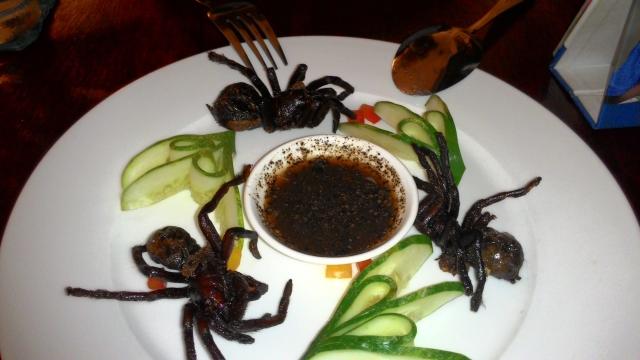New research has demonstrated that edible insects are high in antioxidants — and whether or not you buy into the health benefits of eating antioxidants, it’s an important finding from a nutrition perspective.
Around a third of the world eats insects. They’re a protein-rich, potentially environmentally friendly alternative to chicken, pork and beef. But a team of researchers from the University of Teramo in Italy hope to open up a new perspective: that insects might be worth studying and consuming as sources of other potentially important molecules.
“Insects might be a source of antioxidants with low ecological inputs,” Mauro Serafini, University of Teramo professor and the study’s corresponding author, told Gizmodo.
Before we wade into the insects, we should probably talk about antioxidants. Scientists have long known that the body uses certain molecules, called antioxidants, to counter the effects of free radicals that can potentially cause cell-damaging chemical reactions.
It’s a food buzzword, and “the jury is still out” as to whether consuming antioxidant via foods will actually have the antioxidant effect in humans, according to Jessica Cooperstone, assistant professor at the Ohio State University not involved in this research who studies bioactive plant compounds. There’s a lot of work left to do to understand this better.
We do know that the foods we consider “healthy,” like fruits and vegetables, are often antioxidant rich, but it’s hard to say what specific chemicals in our food induce what effects in the body, due to the complexity of how diet and lifestyle impact our health.
Now, onto the bugs. The authors crushed commercially available insects, including silkworms, grasshoppers, and tarantulas, and tested them for how well fat-soluble and water-soluble chemicals from the bugs acted on a sample of free radicals. Certain bugs, like crickets and silkworms, had more antioxidant activity than orange juice. Giant cicadas seemed to have more antioxidant activity than olive oil.
Please note that this says nothing about the health benefits of these insects — just that they performed a certain way in the lab. I reached out to several researchers who pretty much all agreed that the research itself was good but reiterated that we don’t know if high antioxidant activity means a substance will benefit our health.
But the work demonstrates that insects may be worth more than just their most basic protein, fat, and vitamin content — they might contain beneficial chemicals worth studying, and further research should be done to see if they can serve an important role in our diet.
If you’ve read this far and thought “ew, I’m not eating bugs,” then let me counter. First off, lots of insects taste great: Black ants have a slightly sour flavour and the texture of caviar, chapulines are Mexican grasshoppers with a pleasant crunch and a flavour akin to salty goji berries, and tarantulas (if prepared properly) taste like soft-shell crab.
But more importantly, livestock requires tons of land and produces a significant amount of greenhouse gases, and the seas are overfished. While I personally think that fighting climate change requires a revolutionary dismantling of capitalism and a large-scale switch to green energy sources like wind, solar, and nuclear, changing our diets to lower-emission proteins could at least help, according to a 2013 UN report.
If people actually are willing to try an alternative protein source like bugs, then the researchers at Teramo see them as an opportunity. Insect-rearers might be able to fine-tune an insect’s diet to maximise its nutritional content, for example, according to the paper published in the journal Frontiers in Nutrition.
Obviously, there’s more research required to figure out whether the antioxidant part even matters. But insects may represent an intriguing new source of nutrients and flavour, as chefs continue experimenting with innovative ways to prepare them.
